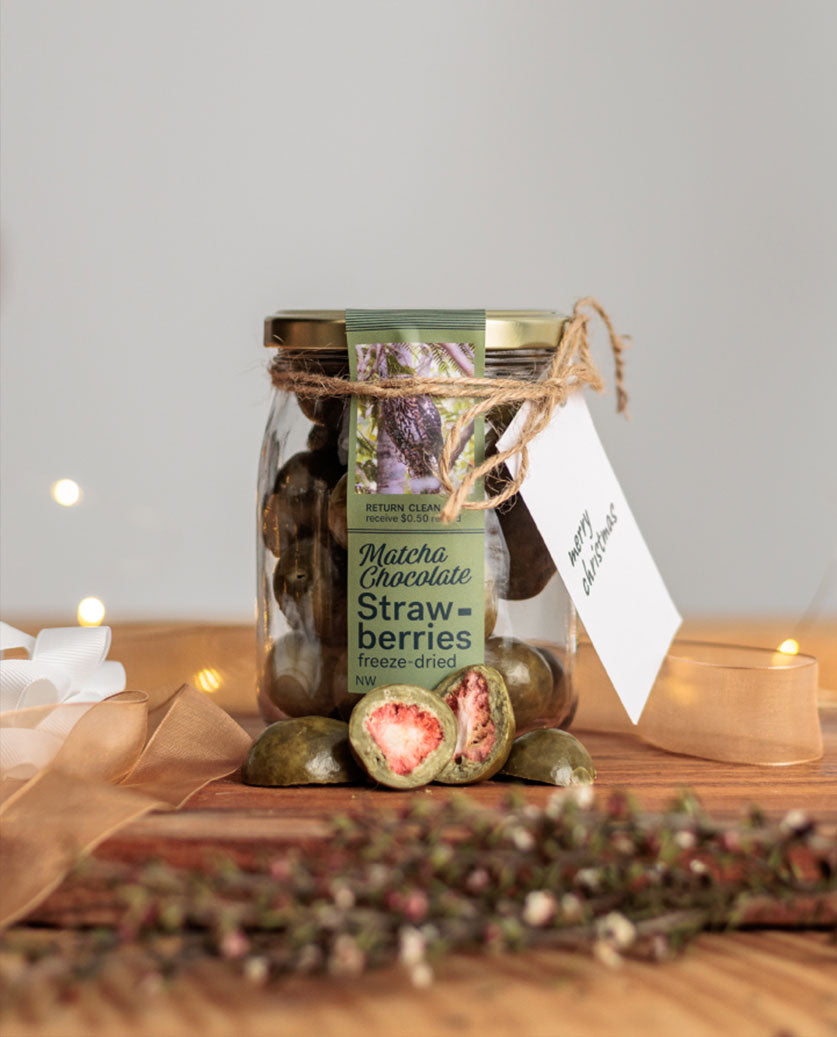Sustainable Living with Brianne West, Founder of Ethique
Meet Brianne, she’s the founder of Ethique – the world’s first zero plastic, zero waste personal care brand.

1. When did you first get introduced to the idea of sustainability? Is this what also inspired you to start Ethique?
I have always been deeply passionate about animals and the environment; when you grow up in New Zealand, it’s hard not to fall in love with your surroundings, and it was instilled in me to make sure we kept our environment in pristine condition. I always wanted to use my passion for environmental conservation to create positive change. Initially, I wanted to be a marine biologist, an oceanographer, a climatologist and a microbiologist, so I went to university to study science and see where it took me. But, upon learning that only 9 percent of plastic worldwide is actually recycled and 8 million tons of plastic ends up in our oceans every year, coupled with the fact that between 75-90% of shampoo and conditioners are made from water, that really shocked me – it seemed like such a waste and an easy problem to solve! I guess the entrepreneur in me wanted to use my scientific background to find a solution. I taught myself cosmetic chemistry and gained a better understanding about how much waste actually comes from the cosmetic industry.
However, the initial idea for the solid beauty bars randomly came to me in the shower when I realised that with so much water everywhere, there’s no need to add it to many of the products we use – the obvious ones were shampoo and conditioner. So I set about researching and mixing ingredients in my kitchen to see if I could develop a solid beauty bar that delivered the same results but without the need for all the plastic packaging. From there came the other 46 products! Our products come in 100% home compostable packaging and just under eight years later, we’ve prevented over six million plastic bottles from being created and going to landfill and are aiming to reach 50 million by 2025!
2. What do you think is the biggest waste problem within the beauty industry? And how does Ethique combat this problem?
Without a doubt, packaging. Over 40% of total plastic use worldwide comes from product packaging. A lot of products (particularly more high-end brands) have packages within packages, none of which tend to be recyclable as they’re made out of mixed materials. The majority of cosmetic packaging is obviously plastic and yes it is sometimes technically recyclable, however what most people don’t realise is that only 9% of plastic ever made, has ever been recycled, globally, for a variety of different reasons. That means out of 14 bottles, statistically only one will be recycled. There is another slightly more horrifying statistic too – they now believe as much as 10% of all plastic ever made ends up in our oceans eventually, be it in in its original form, or broken up into microplastics. And that number is expected to grow.
Global plastics manufacturers are gearing up to produce 30% more plastic in the next five years, and the beauty industry will be a significant consumer of this plastic.
With Ethique, we’re combatting this problem by providing a range of products across hair, face, body, household and pet that are all solid, containing little to no water and packaged in 100% certified home-compostable cardboard packaging. We’re ridding the world of plastic bottles one bar at a time.

3. What are some of the important factors people need to consider before they purchase beauty items, such as shampoo and body wash?
Packaging is a huge factor, home compostable is obviously best but where not available, a recyclable material such as glass would be another option. Aside from packaging, it’s important to think about ingredients and the overall carbon footprint of the product, especially transport. Supply chains in the beauty industry are almost uniformly hideous; with a lot of producers of ingredients such as cocoa butter and palm oil working for almost non-existent payment, in terrible conditions, with no real hope of finding a way out. Child labour is a large factor in a lot of ingredients too, particularly cocoa butter and some other oils, alongside the well known one, mica.
The environmental impact of these ingredients is slightly better known, palm oil is finally becoming infamous for it’s truly hideous impact on the environment, but finding cosmetics without it is tough, because almost all surfactants, emulsifiers and other cosmetic components have a palm oil base.
All Ethique products are certified vegan, cruelty-free and also certified palm oil free by the Orangutan Alliance, which is incredibly unusual, because it is really hard to commit to that (and costs a lot to do.)
The social and environmental commitments of the company are also important, for example whether they are a BCorp, pay a living wage, use fair-trade, sustainable ingredients and much more. Ethique ticks a lot of boxes for consumers but we’re also constantly thinking about what more we could do.
I completely understand that it can be overwhelming but luckily, there are certifications now that make it easier to identify and trust brands who are making a difference and companies are becoming more and more transparent about the entire lifecycle of their products so often an email or phone query can help. Of course, greenwashing is still rife.
4. Do you have a favourite Ethique product?
Pinkalicious, one of our best-selling solid shampoos, has been my favourite for years! But we’re working on a new range currently that I can’t talk about (sorry!) but those products are quickly becoming my new favourite.

5. What are your favourite ingredients or products from GoodFor?
The extensive loose-leaf tea range! Jenny, one of the fabulous team, did some research and then a blog on the materials that go into teabags and how much plastic goes into them. I was genuinely surprised, because like so many people I thought they were compostable! Now loose-leaf is my go-to.

6. What’s your idea of the ‘perfect packageless pantry’?
Something that isn’t Instagram worthy! Shopping local and in bulk food stores is a great start but using what you have in terms of containers is really important. I moved houses not too long ago and ensured that I didn’t just go out to buy everything brand new so it matched, I used old jars and random Sistema containers to store stuff. The “perfect” pantry doesn’t have to be brand new.
7. Do you have any extra personal sustainability goals or intentions for 2020?
Yes! This is the year I buy an electric car, (though I have just bought a horse so I need to find an electric car that can also tow a float…)
I am being much more particular about my diet, ditching dairy (I already skip meat) and buying local produce where possible.
I am hoping to buy a chunk of land this year and turn it into native bush; creating a carbon sink which increases biodiversity and soil health in the area.
I’ve also got a secret ocean project on my mind too, which is very exciting.
For Ethique, I am constantly evaluating and re-evaluating what more I could do for the planet and one of my main focuses for this year is strengthening and building on the charitable partnerships we already have, working closer with indigenous communities in some of the areas where we source our ingredients and I have some big plans for a big commitment to tree & mangrove planting to be announced later this year. Watch this space!

If you want to find out more about Ethique products, we stock most of the range in each store or online here.
Thank you for reading – please let us know if you enjoyed this blog and want to see more of this!
 GoodFor
GoodFor

